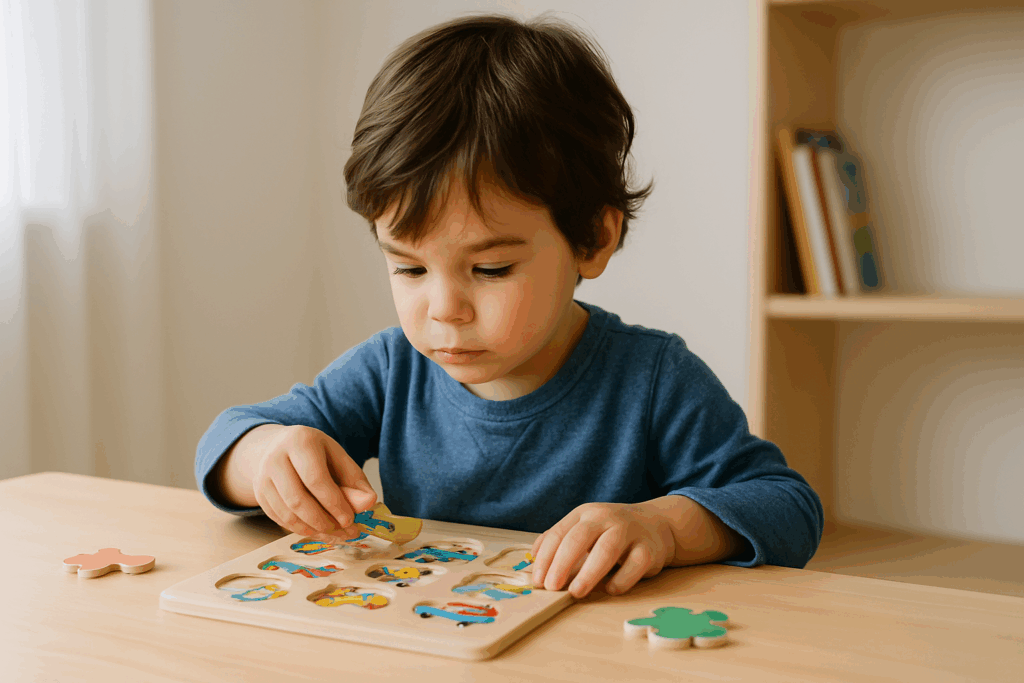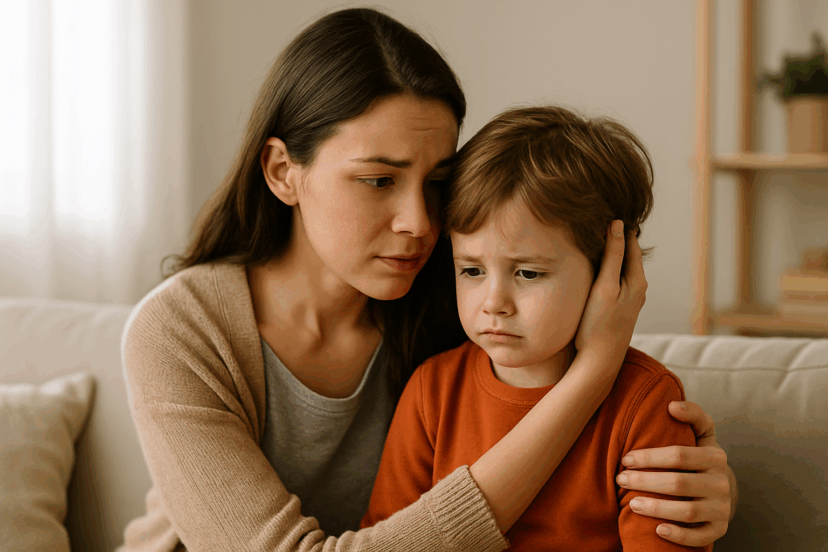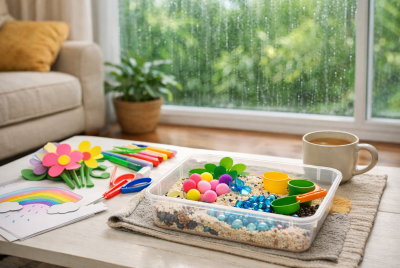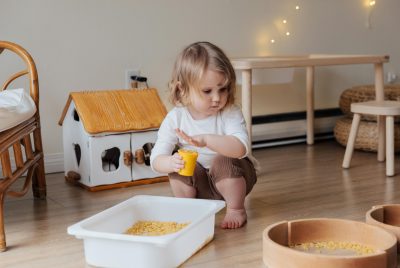Cupcaked Parenting: Are We Raising Resilient Kids or Just Sweet Ones?
We may earn a commission for purchases made using our links. Please see our disclosure to learn more.
Every parent wants their child to feel happy, safe, and loved, let’s face it. But have we gone too far in our attempts to shield our children from every setback—both psychologically and physically? Here comes the sugary-sounding word “cupcaked parenting,” which is causing serious anxiety among parents, educators, and psychologists.
This article explores the idea in detail, showing how occasionally well-meaning parenting approaches can have unexpected repercussions. Learn how to spot cupcaked parenting, how it could affect your child, and how to confidently change your approach without sacrificing your ability to be a compassionate parent.
🍭 What Is Cupcaked Parenting?
Nowadays, the phrase “cupcaked parenting” refers to an excessively lavish and protective parenting approach. Its foundation is undoubtedly love, but it’s the kind of love that minimizes all hardships and protects kids from pain, setbacks, or failure.
Think of it like handing your child a cupcake every time they’re upset—it offers momentary sweetness, but doesn’t build long-term strength or resilience.
Key traits of cupcaked parenting include:
- Constantly rescuing your child from struggle
- Avoiding conflict at all costs
- Giving excessive praise for minimal effort
- Fearing your child’s negative emotions or boredom
- Setting very few boundaries
While the intent is nurturing, this parenting style can leave kids unequipped to deal with the real world.

🚩 Signs You Might Be a Cupcaked Parent
Not sure if you’ve fallen into this trap? Here are a few telltale signs that your parenting may be a little too sweet for its own good:
- You often do tasks for your child to avoid their frustration.
- You rarely say “no” because you don’t want to upset them.
- You praise your child for everything—even things they didn’t really try at.
- You step in to solve arguments instead of letting them navigate conflict.
- You dread your child being bored, sad, or uncomfortable.
Every parent does these things sometimes. The problem arises when they become the default approach.
🧠 The Impact of Cupcaked Parenting on Child Development
While a cupcake now and then won’t hurt, a steady diet of sugar-coated parenting can have long-term consequences.
Psychologists suggest it may lead to:
- Low frustration tolerance: Kids don’t learn how to handle disappointment or failure.
- Entitlement issues: When everything is handed to them, effort and gratitude may take a backseat.
- Anxiety: Ironically, shielding kids from discomfort can make the world feel more scary and unpredictable.
- Dependency: Without the chance to solve problems, children may struggle to develop autonomy.
In fact, a study published in the Journal of Child and Family Studies found that overprotective parenting was strongly linked to higher levels of anxiety in adolescents.
👉 Read more about the study here via SpringerLink.
⚖️ How to Strike a Healthy Parenting Balance
You can absolutely be a nurturing parent without being a cupcaked one. Here’s how:
1. Let Them Struggle—A Little
Controlled challenges build resilience. Let your child face manageable problems on their own before stepping in.
2. Set Loving Limits
Boundaries give kids a sense of safety and structure. Learn to say “no” and stick to it.
3. Praise Effort, Not Outcome
Celebrate perseverance, strategy, and creativity over just winning or “being smart.”
4. Model Emotional Regulation
Instead of fixing every sad or angry moment, help your child name their feelings and guide them through it. For more help navigating big emotions, explore strategies for managing toddler tantrums effectively.
5. Create Opportunities for Autonomy
Chores, independent play, and age-appropriate decision-making help develop real-world confidence.
📚 What the Research Says: Cupcaked Parenting and Emotional Development
If you’re wondering whether the concerns around cupcaked parenting are backed by science, the answer is yes. Several studies have highlighted how overprotective and overindulgent parenting can negatively impact a child’s emotional well-being and independence.
1. Overparenting and Adolescent Anxiety
In a study published in the Journal of Child and Family Studies, researchers examined how overparenting affects emotion regulation in teenagers. The findings revealed that children raised with overly involved or controlling parents often struggle with emotional regulation—an essential skill for handling stress, making decisions, and building resilience.
2. The Broader Impact of Overprotective Parenting
A comprehensive meta-analysis in the Journal of Affective Disorders confirmed that parental overprotection is linked to a higher risk of anxiety, depression, and other internalizing disorders. This large-scale review analyzed multiple studies and concluded that shielding kids too much from failure, conflict, or disappointment can impair their long-term mental health.
Together, these findings suggest that while a nurturing environment is crucial, overdoing it may create exactly the kind of emotional fragility many parents are trying to avoid.

🛍️ 5 Products That Help Encourage Independence and Resilience
Looking to support your parenting goals in tangible ways? These tools promote healthy emotional growth and independence:
- Melissa & Doug Responsibility Chart
A magnetic chore chart that encourages accountability and daily structure.
👉 View on here - Big Life Journal for Kids
Promotes growth mindset with fun, reflective exercises.
👉 View product here - Mindful & Co Kids Yoga Chart
A playful way to introduce mindfulness and self-regulation.
👉 View product here - Independence-Based Toddler Utensil Set
Help toddlers build motor skills while feeling “grown up.”
👉 View product here - Timer Clock for Routines
Let kids manage time with visual cues, boosting independence during transitions.
👉 View product here
🧁 Conclusion: A Sweeter Way to Parent, Mindfully
Cupcaked parenting doesn’t come from laziness—it comes from love. But just like a diet full of sweets, too much softness can backfire.
By offering structure, space for struggle, and the right tools to grow, we can raise kids who aren’t just happy—but capable, confident, and kind.
So go ahead—offer your child a cupcake. Just don’t forget the broccoli, too. 😉
🙋♀️ FAQs
1. What’s the difference between gentle parenting and cupcaked parenting?
Gentle parenting focuses on empathy and guidance with firm boundaries, while cupcaked parenting tends to avoid conflict and consequences altogether.
2. Can being too nice harm my child’s emotional growth?
Yes. Shielding children from natural consequences or discomfort can delay their ability to manage emotions and solve problems.
3. How can I toughen up my parenting without being harsh?
Start small: set clear boundaries, allow natural consequences, and praise effort over outcomes. It’s about balance, not punishment.
4. What are signs my child is too dependent?
If they struggle with decision-making, seek constant validation, or avoid challenges, they may need more independence-building experiences.
5. Are there resources to help reframe my parenting approach?
Yes! Books like The Gift of Failure by Jessica Lahey and Raising Resilient Children by Robert Brooks are great places to start.




